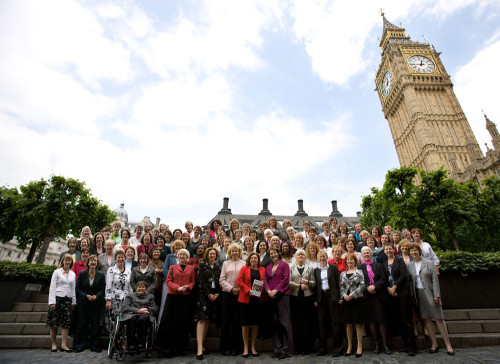
Political parties are complicit in putting young women off politics and it has to stop. That means changing our culture, stamping out sexism and supporting young women members to get involved.
Nearly half of young women say they want to volunteer, but the figure drops to 28 per cent when it comes to getting involved in politics. 20 per cent of women say they are put off a career in politics because they see it as a job for men. 30 per cent of councillors and just 15 per cent of council leaders in England are women.
It’s no surprise. Those that do get involved – in any party – face structures that hold them back and a culture that is sexist, intimidating and off-putting.
A recent Fabian Society survey found 28 per cent of women members had received sexist abuse online, 98 per cent had seen women in public life receive sexist abuse online and 91 per cent had concerns about taking a more prominent public role as a result of online sexist abuse.
In local parties women tend to become secretaries not chairs and feel unsupported when they make it to the top. In campaigns women candidates face questions about their ability to do the role both because they have children and because they don’t. At socials women are subjected to inappropriate comments and behaviour. On the national stage women are often overlooked, objectified and ridiculed.
When incidents occur many do not know how to report them. If they do, they fear for their positions, their career and their credibility. Too often they are expected to report to the men in charge and too often they feel alone in their experience. The problem is, they are very much not alone.
As a young woman, I know that the culture of all parties, at all levels, needs to change.
As a voluntary organisation Labour has a duty to look after all its members – not least because they are the ones championing our cause day-in day-out on the doorsteps and in our communities.
As a political party we must recognise that these problems are magnified. Informal and formal power – usually held by men – is highly regarded and commonly exercised, making life far more difficult for women who tend not to have that power.
As the party of equality Labour should take the lead in tackling the barriers women face. We must stand up, not stand by, when issues occur. That means bringing issues to the fore and being brave about tackling them.
We need a more honest and open culture where bad behaviour is called out. We need political education and unconscious bias training to highlight the prejudices that still exist. We need thorough codes of conduct that extend to the online sphere and are enforced. We need training for staff members and those in positions of power in our local, regional and national parties to better deal with problems that do occur. We need an element of independence in our complaints reporting too, so people can have confidence in the system and not fear political consequences.
The party also has a duty to the young women bucking the trend. They are our ambassadors among a group that’s often hard to reach. The onus is on everyone to give them the support, encouragement and resources they need to break down barriers.
I joined Labour because it’s the party of equality. While we do so much to champion women’s equality in Britain, there is still more to do in our own back yard.
I’m planning to stand up, not stand by. I hope others will join me.




More from LabourList
Josh Simons resigns as Cabinet Office minister amid investigation
‘After years of cuts, Labour’s local government settlement begins to put things right’
‘The Sherriff of Wild Westminster: what must change in elections bill’